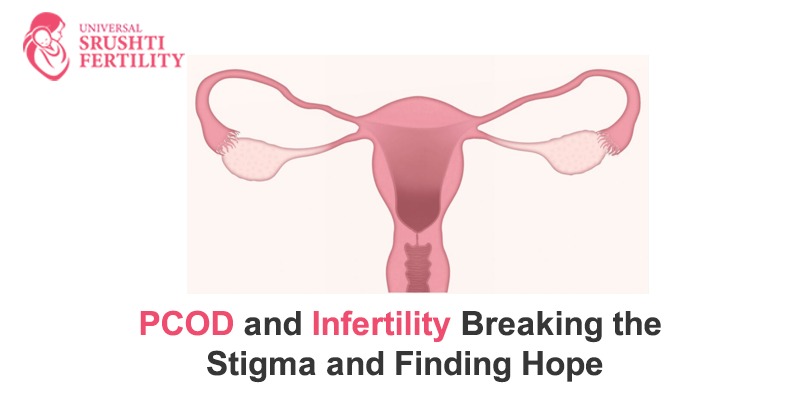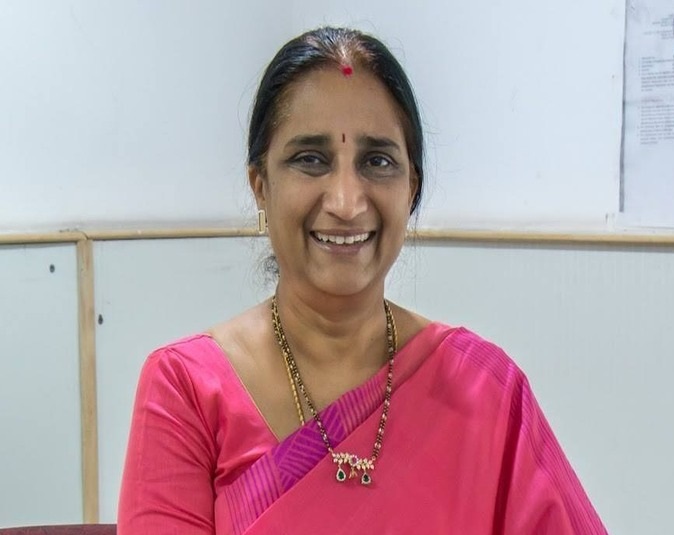“PCOD and Infertility: Breaking the Stigma and Finding Hope”
Polycystic Ovary Syndrome (PCOS) affects millions of women worldwide and is a leading cause of infertility. Despite the prevalence of PCOD-related infertility, there is still a lot of stigma and misinformation surrounding this condition. In this blog, we will explore the link between PCOD and infertility and discuss the available options for PCOD treatment in Secunderabad, Hyderabad.
PCOD clinic in Hyderabad
Factors to consider when choosing a PCOD women care clinic in Hyderabad may include:
- Reputation: Look for a clinic with a good reputation for providing high-quality care and achieving successful outcomes.
- Expertise: Check to see if the clinic has healthcare providers who are experienced in treating PCOD and infertility.
- Range of services: Look for a clinic that offers a range of treatment options, including ART and other fertility treatments.
- Facilities: Check to see if the clinic has modern facilities and equipment that meet international standards.
- Cost: Consider the cost of treatments and whether the clinic offers financing options or accepts insurance.
Universal shrushti fertility center is among the PCOD clinic in Hyderabad
Factors that cause PCOD
Here are some of the factors that may contribute to the development of PCOS:
Insulin resistance: Insulin is a hormone produced by the pancreas that helps regulate blood sugar levels. In women with PCOS, the body may become resistant to insulin, leading to high levels of insulin in the blood. This can cause the ovaries to produce more androgens (male hormones), which can disrupt the menstrual cycle and cause the development of cysts on the ovaries.
Hormonal imbalances: PCOS is often associated with imbalances in hormones such as luteinizing hormone (LH), follicle-stimulating hormone (FSH), estrogen, and progesterone. These imbalances can disrupt ovulation and cause irregular menstrual cycles.
Genetics: PCOS can run in families, suggesting a genetic component to the disorder.
Inflammation: Chronic inflammation in the body may contribute to the development of PCOS.
Lifestyle factors: Poor diet, lack of exercise, and obesity may increase the risk of developing PCOS.
It’s important to note that not all women with PCOS will experience the same symptoms or have the same underlying causes. Treatment for PCOS typically involves managing symptoms and addressing underlying hormonal imbalances, which may include lifestyle changes, medication, or assisted reproductive technologies like IVF. Consultation with a healthcare provider can help determine the most appropriate treatment plan.
Who are at risk of PCOD
Polycystic ovary syndrome (PCOS) is a common hormonal disorder that can affect women of reproductive age. While the exact cause of PCOS is not fully understood, there are certain risk factors that may increase the likelihood of developing the condition:
Family history: PCOS can run in families, suggesting a genetic component to the disorder.
Insulin resistance: Women who have insulin resistance or are overweight or obese may be at increased risk of developing PCOS.
Hormonal imbalances: Women who have imbalances in hormones such as luteinizing hormone (LH), follicle-stimulating hormone (FSH), estrogen, and progesterone may be at increased risk of developing PCOS.
Age: PCOS most commonly develops in women in their 20s and 30s, although it can occur at any age.
Sedentary lifestyle: Lack of exercise and a sedentary lifestyle can increase the risk of developing PCOS.
PCOD and Infertility: Understanding the Connection
PCOD can cause hormonal imbalances, leading to irregular periods, lack of ovulation, and infertility. Women with PCOD have higher levels of androgens (male hormones) than normal, which can lead to anovulation (lack of ovulation) or irregular ovulation. Without ovulation, there is no chance of conception, leading to infertility.
Polycystic ovary syndrome (PCOS) is a common hormonal disorder that affects women of reproductive age. It is estimated that up to 10% of women of childbearing age have PCOS. One of the most significant concerns for women with PCOS is infertility. PCOS can cause hormonal imbalances, leading to irregular periods, lack of ovulation, and infertility.
The ovaries produce hormones, including estrogen, progesterone, and androgens, which are male hormones. In women with PCOS, the ovaries may produce more androgens than usual, leading to an imbalance in hormones. This can cause the ovaries to develop multiple small cysts, which can interfere with ovulation. Without ovulation, there is no chance of fertilization and conception.
Infertility is defined as the inability to conceive after one year of trying for women under 35 years old or six months for women over 35 years old. Women with PCOS are at an increased risk of infertility due to hormonal imbalances that affect ovulation. In fact, PCOS is the most common cause of infertility in women of reproductive age.
There are several ways in which PCOS can affect fertility. First, irregular menstrual cycles can make it difficult to determine the fertile window, which is the time when ovulation occurs and the best time for conception. Without ovulation, there is no chance of fertilization and conception. Additionally, women with PCOS may have anovulatory cycles, meaning that they do not release an egg during their menstrual cycle. Even if ovulation occurs, the quality of the egg may be compromised due to hormonal imbalances, making it more difficult for fertilization to occur.
Fortunately, there are treatment options available to improve fertility in women with PCOS. One common approach is to use medications that stimulate ovulation, such as clomiphene citrate or letrozole. These medications help to regulate hormones and stimulate the ovaries to produce and release eggs. Additionally, in vitro fertilization (IVF) can be used to bypass the hormonal imbalances and directly fertilize an egg outside of the body before transferring it to the uterus.
In some cases, lifestyle changes can also improve fertility in women with PCOS. Maintaining a healthy weight through diet and exercise can help regulate hormones and improve ovulation. Reducing stress and improving sleep habits can also have a positive impact on fertility.
PCOD and Infertility: Available Treatment Options
While PCOD-related infertility can be challenging, there are various treatment options available to improve the chances of conception.
Lifestyle Changes: Making lifestyle changes such as losing weight, reducing stress, and improving diet and exercise habits can help manage PCOD symptoms and increase the chances of conception.
Medications: Medications such as Clomiphene Citrate, Letrozole, and Metformin can help regulate ovulation and improve fertility in women with PCOD.
Assisted Reproductive Technology (ART): Polycystic Ovary Syndrome (PCOS) is a common hormonal disorder in women that can cause irregular menstrual cycles, infertility, weight gain, and other symptoms. ART can be an effective treatment option for women with PCOS who are struggling to conceive.
Some ART procedures that may be used to treat PCOS include:
In vitro fertilization (IVF): Women with PCOS may have irregular ovulation, making it difficult to predict when the best time for intercourse is. IVF can bypass this problem by retrieving eggs directly from the ovaries and fertilizing them with sperm in a laboratory dish.
Ovarian drilling: This is a surgical procedure that involves making small punctures in the surface of the ovaries. It is thought to reduce the amount of androgen hormones produced by the ovaries, which can improve ovulation and increase the chance of pregnancy.
Intrauterine insemination (IUI): This procedure involves placing sperm directly into the uterus, bypassing the cervix and improving the chances of conception.
Donor eggs: In some cases, women with PCOS may have poor egg quality or quantity. Donor eggs can be used in an IVF cycle to increase the chance of success.
Breaking the Stigma and Finding Hope
PCOD-related infertility can be emotionally challenging, and the stigma surrounding this condition can make it even more challenging. It’s crucial to break the silence and seek support from family, friends, or a healthcare provider. With the right PCOD treatment in Secunderabad, Hyderabad, , women with PCOD can find hope and fulfill their dreams of becoming mothers.
PCOD-related infertility can be a challenging and emotionally taxing experience for women who are trying to conceive. The stress and anxiety of not being able to get pregnant can lead to feelings of depression, frustration, and hopelessness. Furthermore, the stigma surrounding PCOD can make it even more challenging for women to discuss their infertility struggles and seek help.
It is important to remember that PCOD-related infertility is a medical condition that affects many women. It is not a reflection of a woman’s worth, and seeking support and treatment is essential for improving the chances of conceiving. Women with PCOD should not feel ashamed or embarrassed to discuss their infertility struggles with their healthcare provider, family, and friends.
One of the first steps in treating PCOD-related infertility is to receive a proper diagnosis from a healthcare provider. A diagnosis can help determine the best course of treatment for an individual’s specific needs. Treatment options may include medications, lifestyle changes, and assisted reproductive technologies such as IVF.
In addition to medical treatment, emotional support can be beneficial for women with PCOD-related infertility. Support from family and friends can provide comfort and encouragement during a challenging time. Women may also benefit from seeking support from a mental health professional, support group, or infertility counselor.
Conclusion
PCOD-related infertility can be emotionally challenging, and the stigma surrounding this condition can make it even more challenging. However, with the right PCOD treatment and support, women with PCOD can find hope and fulfill their dreams of becoming mothers. Seeking support from healthcare providers, family, friends, and support groups is crucial for navigating the challenges of PCOD-related infertility. It is essential to remember that infertility is a medical condition, and there is no shame in seeking help and support.


